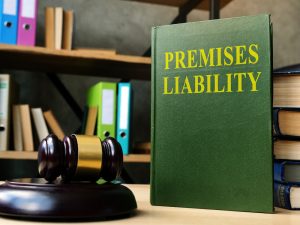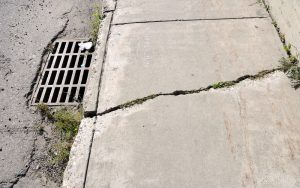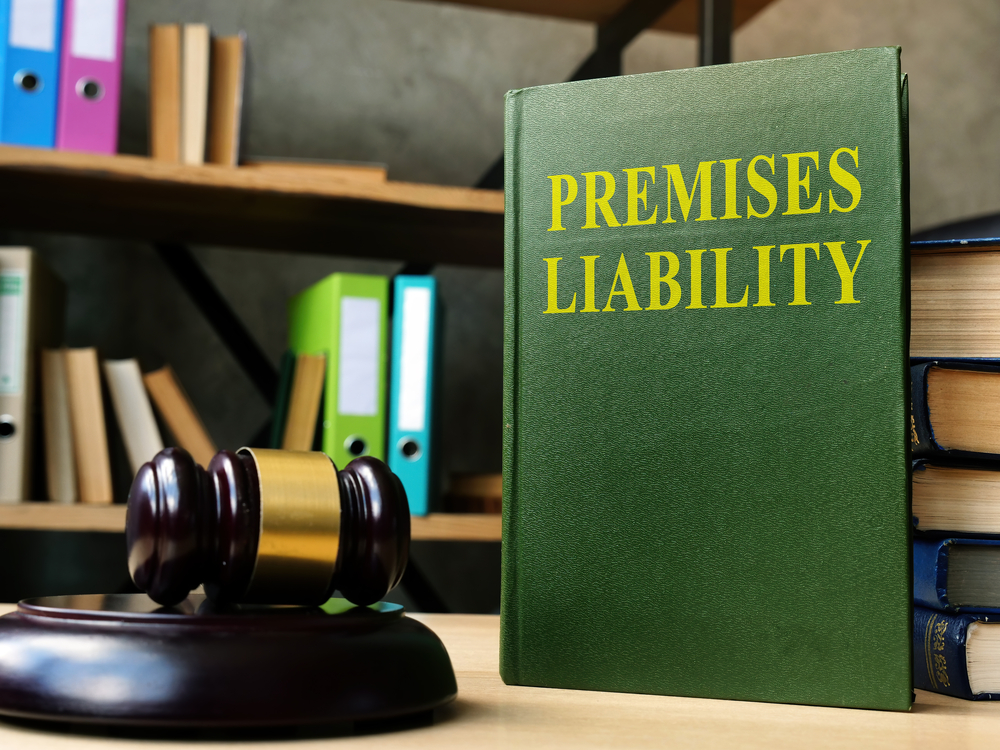Somerset County NJ Premises Liability Attorneys
Seek the support of a Lawyer for Property Related Injuries in Branchburg, Warren, Bernards, Bedminster, and other Somerset County towns

Call us if you or someone you care for has been injured on someone else’s property in Somerset County, NJ.
At Cohen & Riechelson, our personal injury team, over the years, has gained the experience you need on your side when filing a premises liability claim in Somerset County, NJ, including cities and towns like Far Hills, Hillsborough, Watchung, and Montgomery.
Reach us out at (609) 528-2596 or fill out our online form to set up a confidential consultation to consider your possibilities for getting fair compensation for the unfortunate event that left you injured.
What is considered a Premises Liability event in Somerset County, NJ?
Common premises liability lawsuits seek compensation for those injured due to slip-and-fall accidents at supermarkets, water dispensaries, or any retail store when it rains or snows. Without attentive store owners protecting against unsafe slippery conditions, customers may get injured. Someone may break bones or suffer concussions on icy driveways or steps leading to the door, even at home. If you know about the danger, you may be liable to injured visitors. For instance, perhaps a body shop keeps a vicious guard dog on the property; they could be liable to anyone, even a trespasser, the dog attacks. Without proper warning, fencing, or removal of the dangerous condition (an attack dog), the property owner ends up paying compensation to those harmed by the hazards on their property.
The same may be true for public property, say a library or state office that maintains a dangerous condition, such as slick pavement around a water fountain, on the public space. And restaurants or bars that serve alcohol may be responsible for those wounded patrons assaulted by a drunk customer. Moreover, in businesses or private residences, people get injured from faulty electrical devices, unstable walls or ceilings, and dim lighting, leading to security issues or car accidents. Also, businesses in crime-ridden neighborhoods may be liable for not providing security guards. And even at your own home, when you have a broken bathroom faucet that runs only scalding hot water, you owe a visitor a duty of care. Failing to warn a visitor or block the bathroom off, you could be liable for your negligent omission when someone gets burned.
And the more dangerous the activity on the premises, the higher the degree of safety the owner must provide. So, amusement parks, fireworks manufacturers, construction sites, and residential swimming pools increase the risks that someone may be injured. The owners must have systems, signs, and enclosures to keep adults and children safe from potential injury or death due to the conditions on their property. Thus, an apartment building owner that rents to families must ensure that they paint walls with unleaded paint maintain fire escapes and prevent water heaters from exploding, for example. Anyone entering another’s property expects the owner to know unsafe conditions and warn or protect them against injury. Without doing so, they may be held accountable and required to provide compensation to the injured victim. A responsible party may pay voluntarily or pay through litigation.
Are property owners responsible for paying medical bills?
Those injured on another’s property due to the owner’s negligence may be compensated for their medical expenses due to injury. The responsible owner must also pay for the injured party’s pain and suffering, emotional distress, lost income or benefits, lost earning capacity, or any other losses they would not have suffered had the injury not occurred. And if the owner does not voluntarily compensate a victim, the injured party may file a lawsuit within two years of their damage. After that, the statute of limitations runs, and a court can reject their case as untimely. If filed on time, an injured party may seek reimbursement for damages caused by a property owner’s neglect if they can prove the owner breached their duty. Property owners owe a duty to keep people safe on their property, to varying degrees. If a breach of that duty caused the plaintiff injury, they must prove the extent of their damages with evidence.
A Duty of Care is a Legal Question in a Premises Liability Claim

A licensee is a guest who enters the property for their benefit. For example, a friend or family visitor is a licensee. A property owner owes licensees a duty to warn them of known dangers on the property. The owner is not liable for unknown harmful conditions and has no obligation to scour their property for hidden hazards. On the other hand, invitees enter another’s property for the property owner’s benefit, so the duty is higher for invitees, like retail store customers or restaurant patrons. Business property owners intentionally lure potential and repeat customers onto their property. As such, a business landowner must go beyond mere warnings of known conditions or conditions about which the landowner should know. The landowner has a duty to reasonably inspect their property for potentially harmful conditions.
For those injured on another’s property in Somerset County, New Jersey, a lawsuit may be the only way to get compensation. Often, business owners have business insurance, and homeowners have homeowners’ insurance to cover injuries occurring on their property. But unless an insurer and claimant agree on the amount that compensates the injured party, a lawsuit may be necessary. In that case, a Somerset County personal injury attorney with experience successfully handling premises liability litigation can help.
Connect with one of our Branchburg NJ Premises Liability Lawyer for Help to Pursue Your Claim and Recovery
Our seasoned legal team at Cohen & Riechelson can assist with every aspect of your premises liability case. Depending on the nature and circumstances, as well as the other party’s willingness to negotiate, we may settle your claim with the insurance company or the property owner, or proceed with litigating the lawsuit on your behalf for the court to decide how much the liable party must pay.
Always, getting you the highest possible damages is our goal as we work alongside you to do just that. In any event, if you fell or otherwise harmed yourself on another’s property in places like Franklin, South Bound Brook, Manville, Green Book, Berkeley Heights, Westfield, and nearby places, call a premises liability lawyer at (609) 528-2596 for a free initial consultation.

